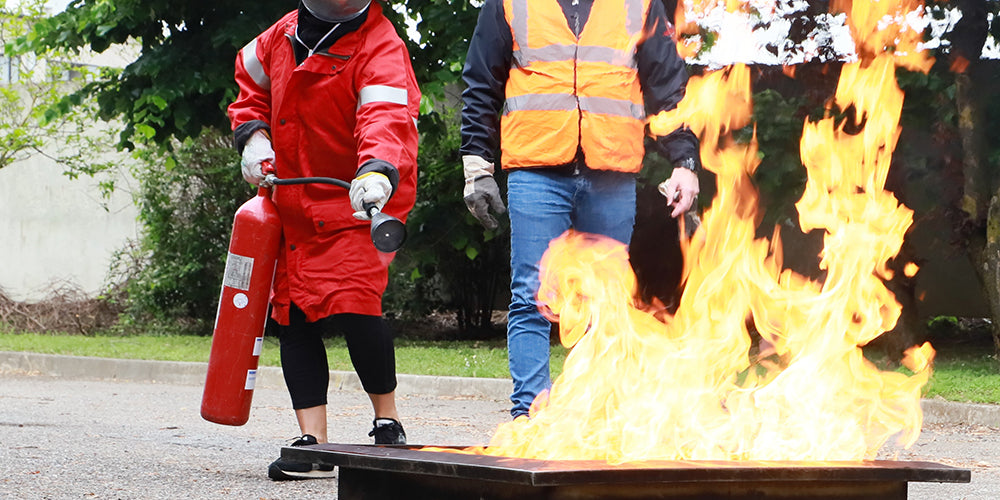You have no items in your shopping basket.
Core and mandatory training for adult social care
Ensuring excellence: The importance of core and mandatory training for adult social care in the UK
Rose Mabiza
12-04-2024
In adult social care in the UK, ensuring excellence in service provision is not just a goal; it's a mandate. At the heart of achieving this lies the effective implementation of Core and Mandatory Training for Adult Social Care, aligned with Skills for Care standards. In this blog, Rose Mabiza delves into the significance of this training, exploring key definitions, relevant legislation, and best practices to underscore its importance. Let's embark on a journey to understand how this training ensures the highest standards of care for vulnerable adults.
Key facts and statistics
- According to Skills for Care, there were an estimated 1.52 million jobs in the adult social care sector in England alone in 2020, highlighting the vast workforce involved in delivering care. (Skills for Care, "The Size and Structure of the Adult Social Care Sector and Workforce in England")
- The Care Quality Commission (CQC) reported that in 2020, 77% of adult social care services in England were rated as 'Good' or 'Outstanding', emphasising the importance of quality training to maintain these standards. (Care Quality Commission, "State of Care 2019/20")

Image by Rawpixel via Envato Elements

Image by Wavebreakmedia via Envato Elements
Key definitions
- Core training - Essential education programs providing foundational knowledge and skills required for adult social care.
- Mandatory training - Training required by law or regulation to ensure compliance and competency in specific areas.
- Skills for Care Aligned - Training programs designed to meet the standards and guidelines set by Skills for Care, ensuring consistency and quality in the sector.
Relevant legislation, regulations, and best practices
- Health and Social Care Act 2008 - This legislation provides the legal framework for regulating and inspecting social care services in England.
- Care Quality Commission (CQC) Standards - The CQC sets standards for the quality and safety of care in the UK, including requirements for staff training and development.
- Skills for Care Guidance - Skills for Care provides guidance and best practices for adult social care training, ensuring alignment with sector standards.

Image by BLACKDAY via Envato Elements

Image by Pressmaster via Envato Elements
Unlocking excellence - Core and mandatory training for adult social care
Importance of effective core and mandatory training
- Ensuring compliance - Core and mandatory training ensures compliance with legal and regulatory requirements, safeguarding service users and staff.
- Enhancing quality of care - Training equips staff with essential skills and knowledge, improving the quality of care delivered to vulnerable adults.
- Promoting professionalism - By investing in training, organisations demonstrate a commitment to professionalism and continuous improvement in service provision.
- Empowering staff - Training empowers staff to make informed decisions, advocate for service users' rights, and contribute positively to their well-being.
Recommendations
- Invest in quality training programs - Choose accredited training providers like The Mandatory Training Group to ensure high-quality and effective training.
- Regularly review and update training - Keep training programs up-to-date with the latest legislation, regulations, and best practices to maintain relevance and effectiveness.
- Encourage continuous learning - Foster a culture of learning and development within the organisation, encouraging staff to pursue additional training and qualifications.

Image by biasciolialessandro via Envato Elements

Image by biasciolialessandro via Envato Elements
Conclusion
Effective Core and Mandatory Training for Adult Social Care is not just a regulatory requirement; it's a cornerstone of excellence in service provision. By investing in quality training aligned with Skills for Care standards, organisations can ensure compliance, enhance the quality of care, and empower staff to deliver person-centred support to vulnerable adults. Let's commit to upholding the highest standards of care by prioritising effective training for our workforce.
Ready to elevate your organisation's commitment to excellence in adult social care? Explore our accredited Core and Mandatory Training courses today and empower your staff to make a difference in the lives of vulnerable adults.
In adult social care in the UK, ensuring excellence in service provision is not just a goal; it's a mandate. At the heart of achieving this lies the effective implementation of Core and Mandatory Training for Adult Social Care, aligned with Skills for Care standards. In this blog, Rose Mabiza delves into the significance of this training, exploring key definitions, relevant legislation, and best practices to underscore its importance. Let's embark on a journey to understand how this training ensures the highest standards of care for vulnerable adults.
Key facts and statistics

Image by Rawpixel via Envato Elements
- According to Skills for Care, there were an estimated 1.52 million jobs in the adult social care sector in England alone in 2020, highlighting the vast workforce involved in delivering care. (Skills for Care, "The Size and Structure of the Adult Social Care Sector and Workforce in England")
- The Care Quality Commission (CQC) reported that in 2020, 77% of adult social care services in England were rated as 'Good' or 'Outstanding', emphasising the importance of quality training to maintain these standards. (Care Quality Commission, "State of Care 2019/20")
Key definitions

Image by Wavebreakmedia via Envato Elements
- Core training - Essential education programs providing foundational knowledge and skills required for adult social care.
- Mandatory training - Training required by law or regulation to ensure compliance and competency in specific areas.
- Skills for Care Aligned - Training programs designed to meet the standards and guidelines set by Skills for Care, ensuring consistency and quality in the sector.
Relevant legislation, regulations, and best practices

Image by BLACKDAY via Envato Elements
- Health and Social Care Act 2008 - This legislation provides the legal framework for regulating and inspecting social care services in England.
- Care Quality Commission (CQC) Standards - The CQC sets standards for the quality and safety of care in the UK, including requirements for staff training and development.
- Skills for Care Guidance - Skills for Care provides guidance and best practices for adult social care training, ensuring alignment with sector standards.
Unlocking excellence - Core and mandatory training for adult social care

Image by Pressmaster via Envato Elements
Importance of effective core and mandatory training
- Ensuring compliance - Core and mandatory training ensures compliance with legal and regulatory requirements, safeguarding service users and staff.
- Enhancing quality of care - Training equips staff with essential skills and knowledge, improving the quality of care delivered to vulnerable adults.
- Promoting professionalism - By investing in training, organisations demonstrate a commitment to professionalism and continuous improvement in service provision.
- Empowering staff - Training empowers staff to make informed decisions, advocate for service users' rights, and contribute positively to their well-being.
Recommendations

Image by biasciolialessandro via Envato Elements
- Invest in quality training programs - Choose accredited training providers like The Mandatory Training Group to ensure high-quality and effective training.
- Regularly review and update training - Keep training programs up-to-date with the latest legislation, regulations, and best practices to maintain relevance and effectiveness.
- Encourage continuous learning - Foster a culture of learning and development within the organisation, encouraging staff to pursue additional training and qualifications.
Conclusion

Image by biasciolialessandro via Envato Elements
Effective Core and Mandatory Training for Adult Social Care is not just a regulatory requirement; it's a cornerstone of excellence in service provision. By investing in quality training aligned with Skills for Care standards, organisations can ensure compliance, enhance the quality of care, and empower staff to deliver person-centred support to vulnerable adults. Let's commit to upholding the highest standards of care by prioritising effective training for our workforce.
Ready to elevate your organisation's commitment to excellence in adult social care? Explore our accredited Core and Mandatory Training courses today and empower your staff to make a difference in the lives of vulnerable adults.
About the author
Dr Richard Dune

With over 20 years of experience, Richard blends a rich background in NHS, the private sector, academia, and research settings. His forte lies in clinical R&D, advancing healthcare tech, workforce development and governance. His leadership ensures regulatory compliance and innovation align seamlessly.
Related blog articles
View allContact us
Complete the form below to start your ComplyPlus trial and transform your regulatory compliance solutions.







